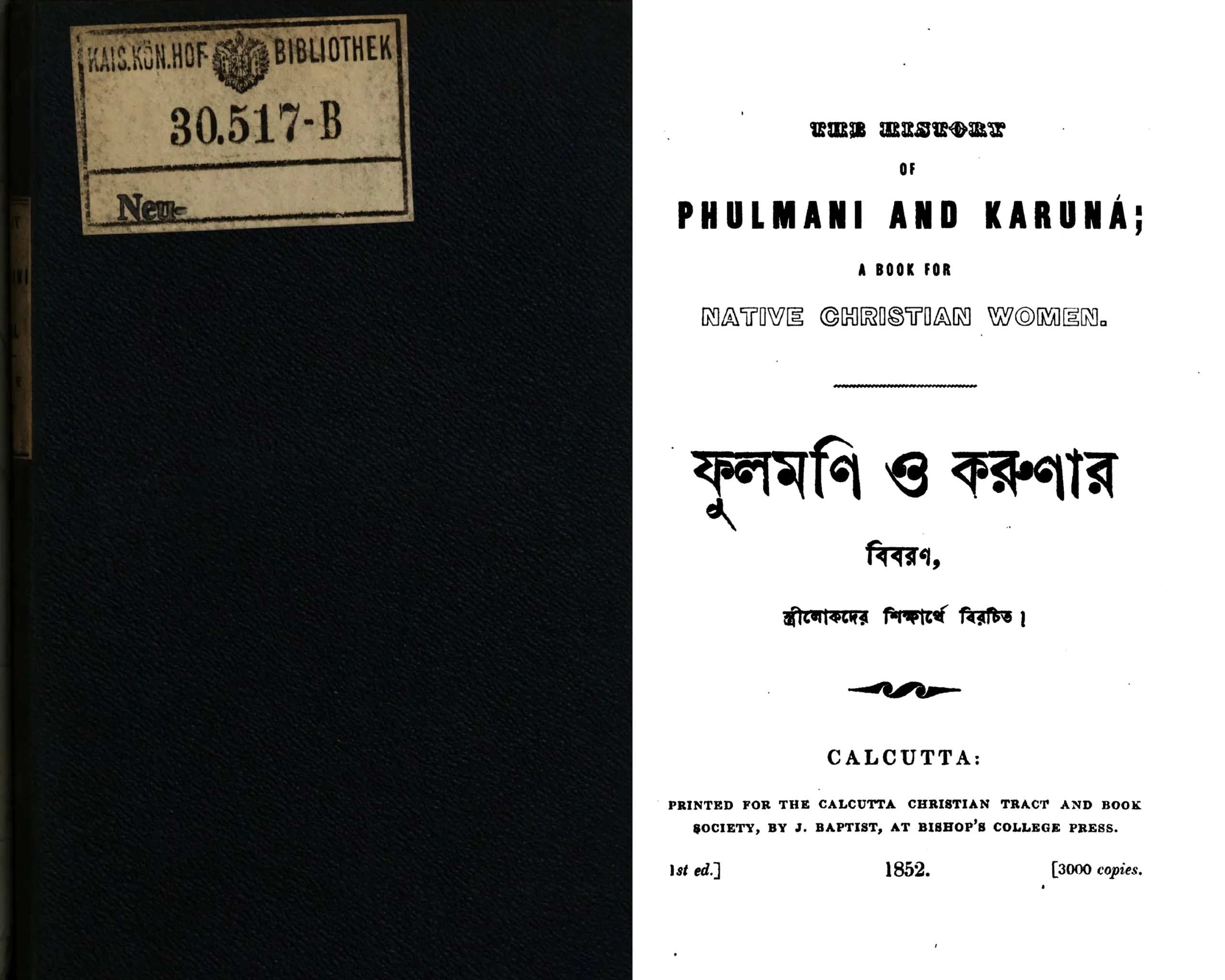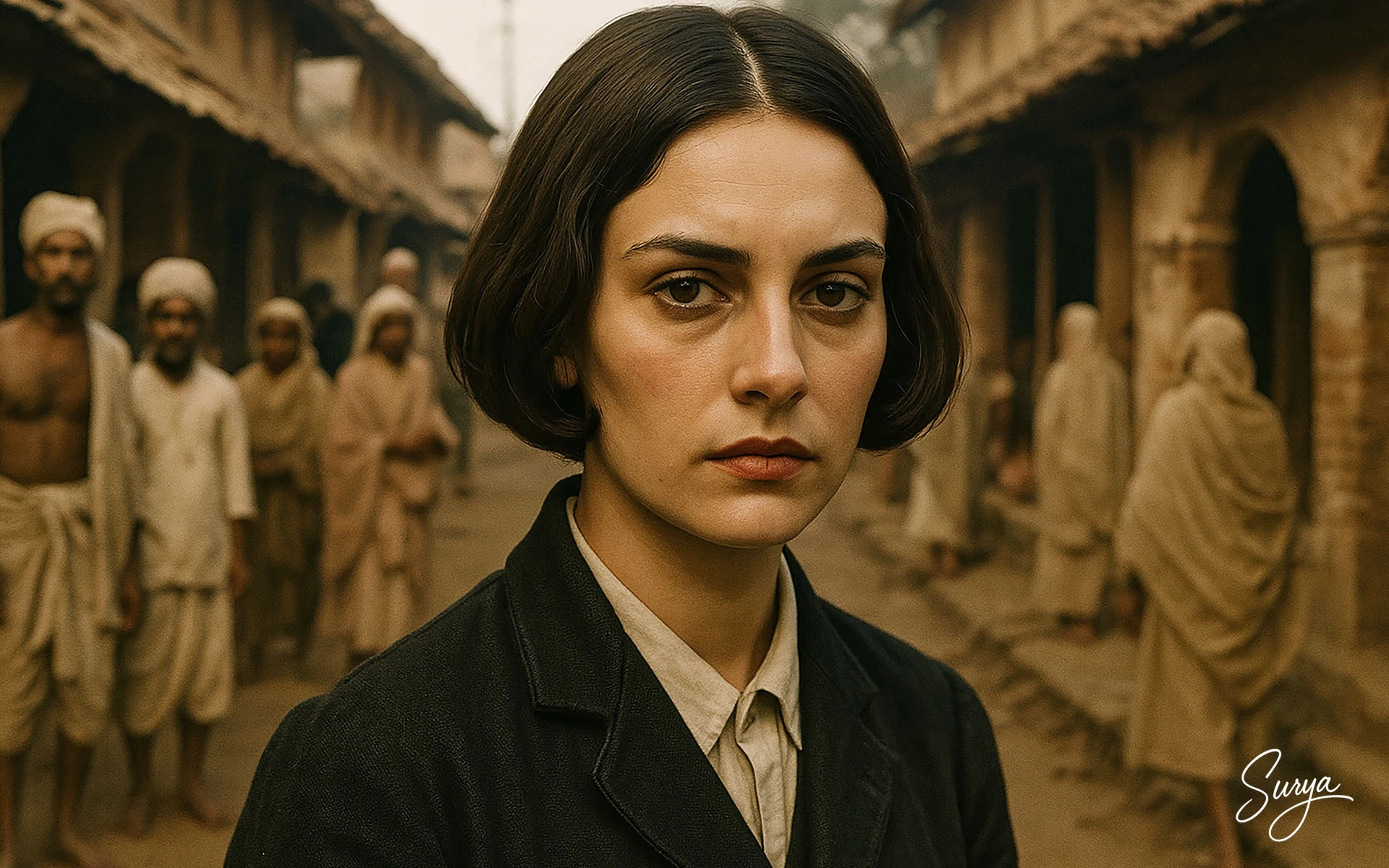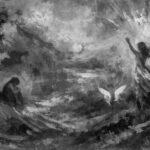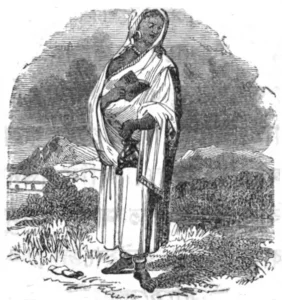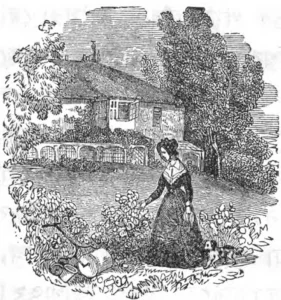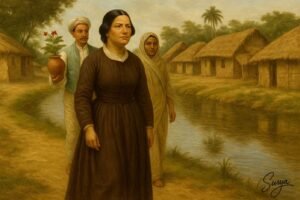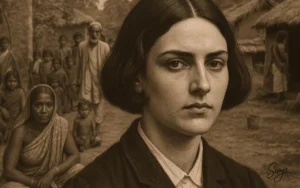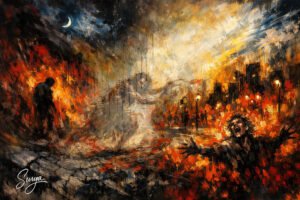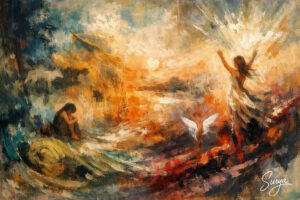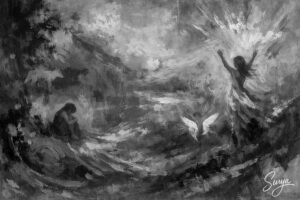Published on: October 28, 2025
‘THE HISTORY OF PHULMANI AND KARUNA; A BOOK FOR NATIVE CHRISTIAN WOMEN’ (Phulmani O Karuna Bibaran) is the first Indian language Novel, published in 1852 written in Bengali language, titled with ‘ফুলমণি ও করুণার বিবরণ, স্ত্রীলোকদের শিক্ষার্থে বিরচিত।’ by Hannah Catherine Mullens. The Novel has 10 chapters and the English Translation is also written by Hannah in 1853. It was printed in Sanders, Cones and Co., at Loll Bazar, Calcutta.
Now the novel is republished here with divided chapters of its 10 chapters. This is the 3rd/Last part of its 1st chapter.
THE HISTORY OF PHULMANI AND KARUNA PART-3
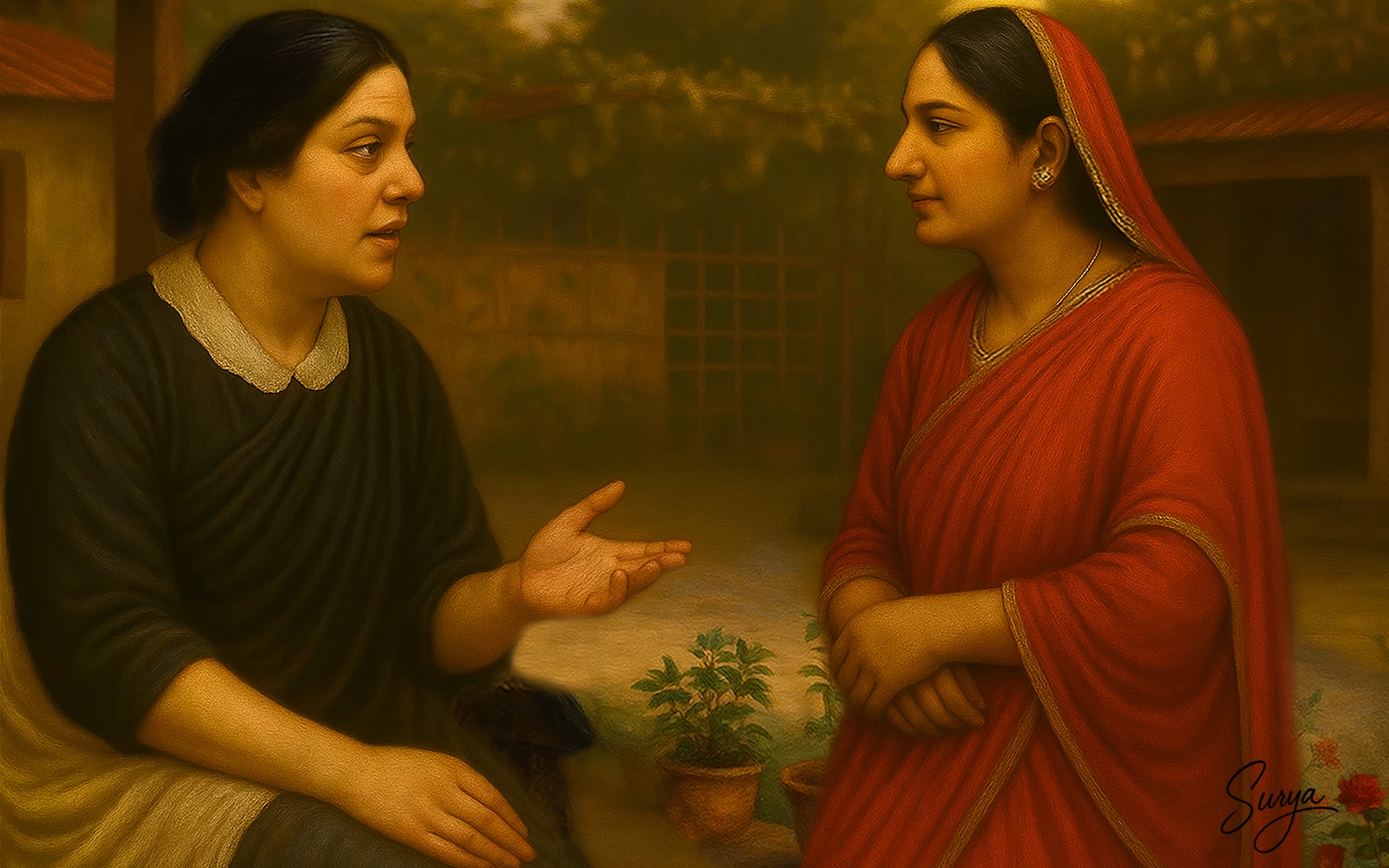
Chapter-1 / Part-1
Phulmani replied, “The lady judges well. Shundari is my eldest daughter; she is about fifteen years old. Two years ago her father was very sick for six months, which was a great distress to us. During these months, I can truly say, that for a single day we never had any better food than rice and vegetables ; still I never incurred a pyce of debt, for I fear debt as I do a snake. Indeed we were in great want of food, but one day reading the history of Elijah the prophet, I saw that God does not, in time of famine, suffer the people whom he protects to die of hunger, but that to preserve their lives, he gives the birds of the air charge to bring them food. (1 Kings xvii. 1—7.) The reading of this gave us great comfort in the time of our distress.”
Then I asked, “ Phulmani, how did you get your daily food ?” Phulmani said,—“ A cook was wanted for the family of the head teacher of the English school, Mahendra Babu. I considered that it was better to serve a stranger than to get into debt. Therefore I went there and got the employment. I was required to go every day in the morning, but at evening time I got leave to go home. Shundari was then at school, but in that time of distress, it was necessary to bring her home, for she was needed to attend upon her father when I went to my work. I got from the Babu three rupees a month, and by selling the cow’s milk we gained, after deducting the expense of the cow’s food, about two rupees a month more. In this way we managed to live for six months, eating coarse rice and clothing ourselves with coarse clothes. Before Shundari’s father fell sick, we had saved sixteen rupees ; for five rupees we had built a cow house, and for eleven rupees we bought a cow and a calf. If we had known before that such suffering was coming upon us, I imagine that we would not have spent this money ; still, in one respect, it was well that it was so, for from that time I always made some profit by selling milk.” Phulmani went on to say, “ After six months, through the goodness of God, Shundari’s father being somewhat recovered, he went again to his work ; but then it was necessary to pay the Kobiraj (village doctor.) He said that he had paid visits to us for six months, for which he could not take less than twenty-four rupees. When we heard this, we were in great anxiety, for we had not then the means of paying him five rupees ; but when God sees His servants in extremity, then He always delivers them. The truth of this we afterwards experienced.
At this time the sister of our Missionary came to stay for some days at the house of her brother ; she is very pious ; her husband is a doctor in Calcutta. This lady, seeing my daughter in the school, took a great liking to her, and having heard of our difficulties, she sent for me and said, ‘Phulmani, allow Shundari to go with me to Calcutta, I will teach her the duty of an ayah. I believe that she is a pious girl and I am very anxious to have such a person to be with my children. Although Shundari does not know anything of her work, yet I promise to give her food and clothes and two rupees a month as wages. Then after she is expert at her duties, I will increase them. If you agree to this proposal, I shall now give you a year’s wages in advance, that is, twenty-four rupees. With this sum you can pay your doctor’s charges and all your troubles will be at an end.’ Ma’am” (Phulmani went on to say) when I came home, I related all this matter to Shundari’s father, but as he was averse to parting with our daughter, I could come to no resolution for five or six days, and did not go to the doctor’s lady. All our neighbours said, ‘Don’t do such a thing on any account.’ Some said, ‘ Fie ! fie ! it will bring disgrace upon her family.’ Some said, ‘ Don’t, the girl will be ruined !’ Others said, ‘ You are exceedingly fond of rupees ; from covetousness you wish to send your daughter to do menial work in a strange place : Bonow money, and do not send away your daughter.’ When I heard the neighbours talk in this way,” (continued Phulmani,) “I also began to consider that to borrow for once was no great harm, and that by care I should soon be able to clear off the debt. But Shundari said, ‘ No, mother ! whence will you get the means of payment ? for the doctor says that unless my father now gets invigorating food, he will never be able to regain his strength; and, mother, you also, through hard work, are becoming very thin. You must now get good food and clothes, let me go to Calcutta, and do not mind what the people say, for I fear God and He will deliver me from all evil.”
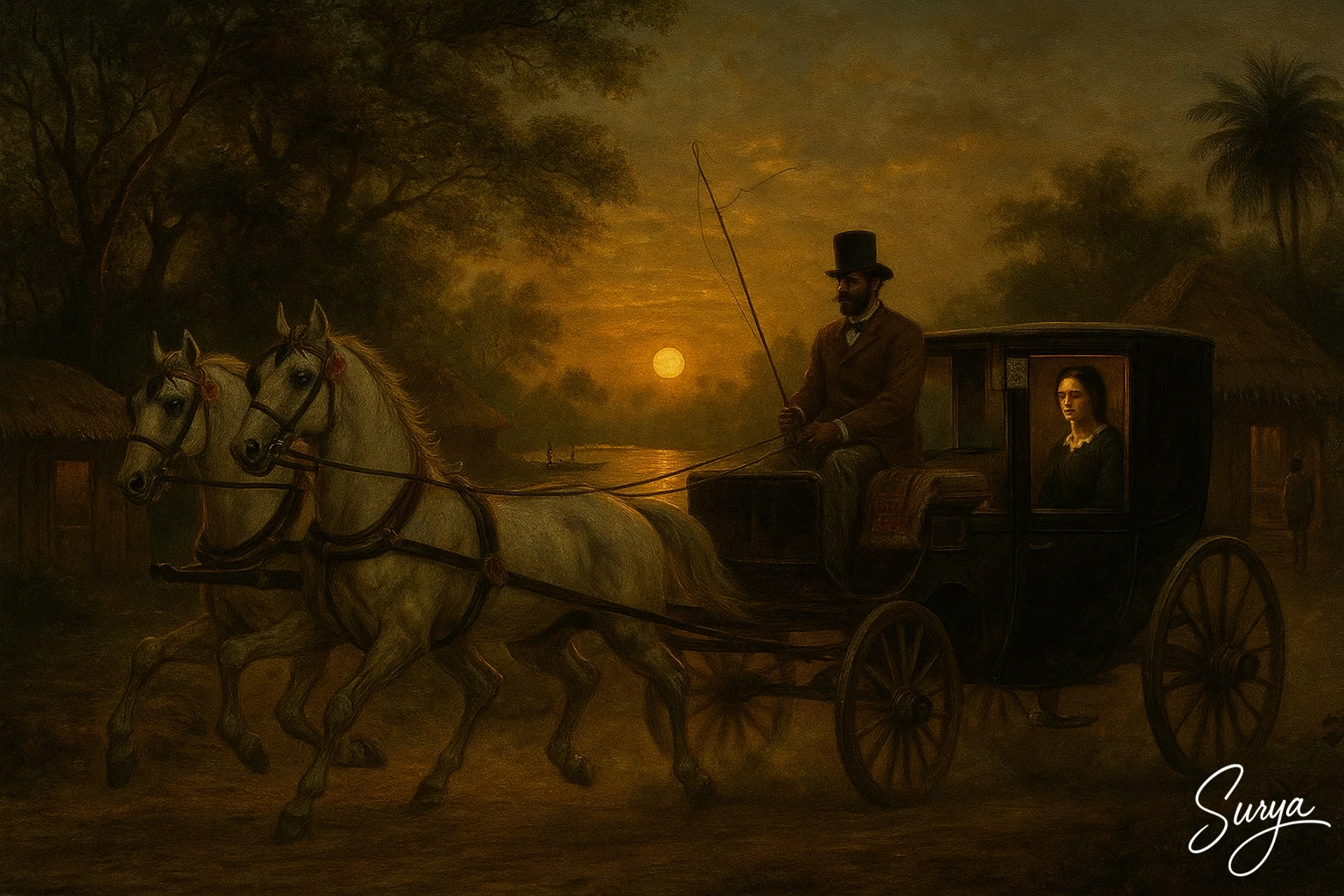
Phulmani said smiling, “ It is very kind of you, madam, to be so anxious to hear an account of my daughter. When we could not in any way decide whether to part with her or not, I went to the Missionary to take advice on the matter. He had then gone to preach the Gospel and distribute books in the bazaar, but his wife asked me to sit down in her room, and then I waited till he returned. As soon as he came I told him the whole matter about Shundari, and asked him what he would advise. ‘ Generally,’ he said, ‘I do not think it good for young Bengali girls to leave their father and mother and go to a distance, for young people are very fickle and thoughtless, and act according to the counsels of wicked people. But this is quite inapplicable to Shundari ; I have observed her conduct for two years, and I am perfectly convinced that she fears God ; and that not trusting in her own strength, she constantly asks for strength and instruction from Jesus Christ. On this account I say, let her go ! no one shall be able to do her any harm.’ He said moreover, ‘ See ! mother of Shundari, you are in adversity, and God is showing you this way of deliverance. You did not seek service for your daughter, and I, for my part, did not say a word on the subject to my sister, therefore when God Himself opens a suitable door, it is the duty of His servants to enter in.’ ”

Click here to read this part in Malayalam
ഈ അദ്ധ്യായത്തിന്റെ, പുതിയ ലിപിയിലുള്ള മലയാളം പരിഭാഷയ്ക്കായി ഇവിടെ ക്ലിക്ക് ചെയ്യുക.
പ്രതിഭാവം വാട്സ്ആപ്പ് ഗ്രൂപ്പിലേക്കു സ്വാഗതം🌹
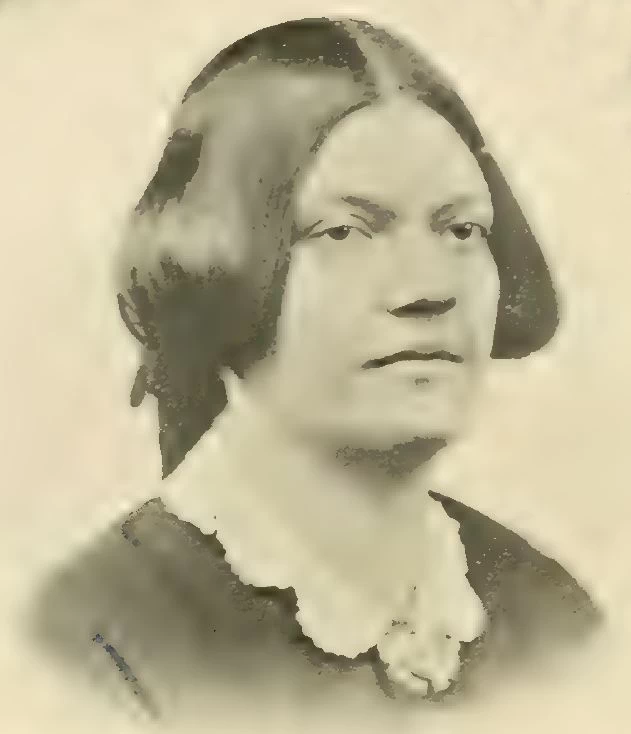
കാതറൈൻ ഹന്നാ മുള്ളൻസ്: ആദ്യത്തെ ഇന്ത്യൻ നോവലിസ്റ്റ്. പത്തൊമ്പതാം നൂറ്റാണ്ടിലെ ഇന്ത്യൻ മിഷണറി പ്രവർത്തക. സ്വീഡിഷ് വംശജയായ ഹന കാതറീൻ മുള്ളൻസ് 1826 ജൂലൈ 1നു കൽക്കത്തയിൽ ഒരു ലണ്ടൻ മിഷണറി കുടുംബത്തിൽ ജനിച്ചു. 1861 നവംബർ 21ന് ഉദരസംബന്ധമായ കുടൽരോഗത്താൽ കൽക്കത്തയിൽവെച്ച് അന്തരിച്ചു.


